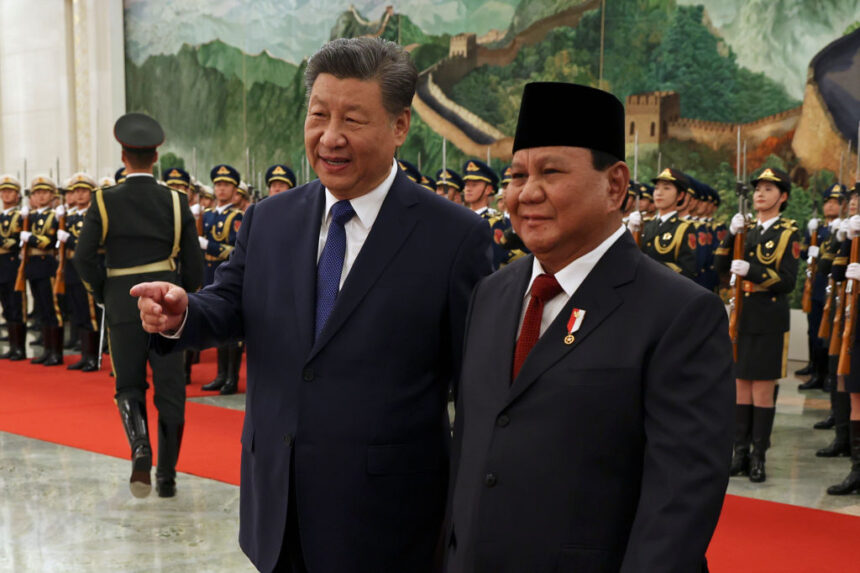Indonesia’s President, Prabowo Subianto, has secured support from Beijing for a free meals programme for the country’s poor, strengthening economic ties with China initiated by his predecessor, Joko Widodo.
During his official visit to Beijing, Subianto signed $15.5 billion in trade and infrastructure agreements, continuing the collaboration between the two nations.
One key focus for Subianto is developing Indonesia’s renewable energy capacity, with deals covering infrastructure, green energy, digital technology, and agriculture.
China is already Indonesia’s largest trading partner and a significant investor, with substantial trade and investment figures between the two countries.
However, some of China’s existing activities in Indonesia have raised concerns due to their environmental and social impact.
Subianto also reached an agreement with Beijing for joint development in disputed South China Sea waters, which could have broader implications for the region.
Seized fishing boats were sunk as part of Jakarta’s effort to deter foreign illegal fishing.
But later in his presidency—perhaps because he hoped to attract foreign investment and expand trade—his approach mellowed.
As the confrontations continued, the Indonesian government just reduced public confrontations.
The ascension of Subianto seemed to signal an end to this meek approach, though, when the Indonesian Coast Guard released a video showing its latest confrontation with a China Coast Guard vessel.
Instead, Subianto seems to be demonstrating that Indonesia can be a friend to Beijing, but will also stand up for itself if necessary while reaffirming its commitment to neutrality in disputes in the South China Sea.
Indonesia has long sought to maintain strong ties with both the United States and China, and Subianto is keen to preserve this balance.
He made a stopover in Washington, D.C., en route to Peru for discussions with President Biden and President-elect Trump.
Another concern to come out of the recent bilateral talks is Beijing’s financial backing of Subianto’s provision of free nutritious meals to Indonesia’s poor as part of his broader social welfare agenda.
During the visit, Subianto said he hoped to learn from China’s experience in improving living conditions.
“We want to learn from [the] Chinese experience, [particularly] how it has developed very rapidly in the last 30 years, especially in alleviating people from poverty,” said Subianto in his meeting with Li Qiang.
Beijing’s strategy throughout the Pacific has been to not just invest in business deals and hope the countries’ populations realise they have the CCP to thank for the flow-on effects, but to directly intervene to provide everything from disaster aid to national stadiums—all with a very high profile.





